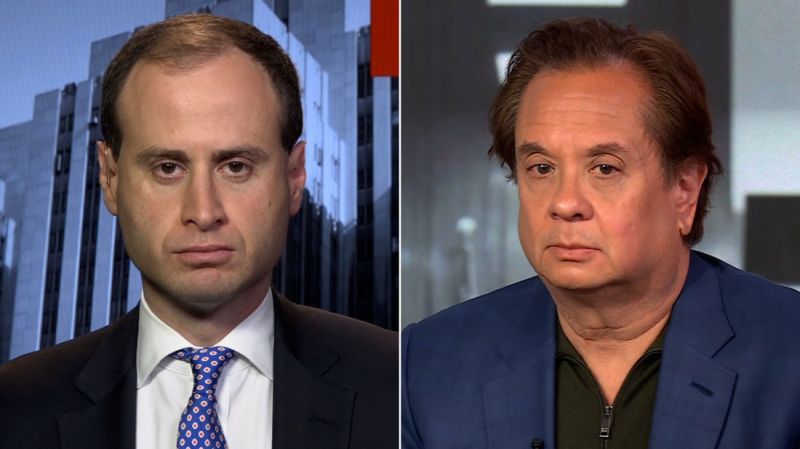Michael Cohen, Trump’s former lawyer, recently testified about the hush money payments made to Stormy Daniels and Karen McDougal during the 2016 presidential campaign. Will Scharf, a lawyer not involved in the case, argues that there is not enough evidence to prove that Trump committed any wrongdoing in this matter. George Conway, on the other hand, disagrees with this assessment and refers to it as “nonsense.” Conway, who is also the husband of White House counselor Kellyanne Conway, believes that the evidence presented by Cohen clearly shows that Trump was involved in criminal conduct.
Scharf’s argument centers around the notion that Trump’s involvement in hush money payments does not necessarily equate to illegal activity. He suggests that it is common for political figures to engage in similar activities to protect their public image and reputation. However, Conway dismisses this argument and emphasizes that the evidence presented by Cohen clearly implicates Trump in criminal conduct. In Conway’s view, the payments made to Daniels and McDougal were made with the intent to influence the election, which would constitute a violation of campaign finance laws.
The conversation between Tapper, Scharf, and Conway delves into the legal implications of Cohen’s testimony and the potential consequences for Trump. Scharf argues that the evidence presented thus far is not sufficient to prove that Trump committed any crimes. He suggests that Trump’s involvement in the hush money payments could be seen as a normal part of the political process, rather than criminal activity. Conway, however, is adamant that Trump’s actions were illegal and should be treated as such. He criticizes Scharf’s perspective as misguided and argues that the evidence clearly points to criminal behavior.
Scharf’s perspective on the hush money case highlights the differing interpretations of legal experts and observers regarding Trump’s potential wrongdoing. While some argue that Trump’s actions were within the bounds of normal political behavior, others, like Conway, contend that the evidence points to criminal conduct. The ongoing debate surrounding this issue underscores the complexities of legal interpretation and the challenges of proving wrongdoing in high-profile cases. Ultimately, the outcome of the hush money case remains uncertain, with the possibility of a hung jury complicating the situation further.
Overall, the discussion between Tapper, Scharf, and Conway sheds light on the competing views regarding Trump’s involvement in the hush money case. Scharf’s argument that Trump’s actions may not constitute criminal behavior challenges the prevailing narrative surrounding the president’s conduct. However, Conway’s assertion that the evidence clearly implicates Trump in illegal activities provides a contrasting perspective that raises important questions about accountability and the rule of law. As the legal proceedings continue, the implications of Cohen’s testimony and its potential impact on Trump’s presidency remain subjects of intense debate and scrutiny.


